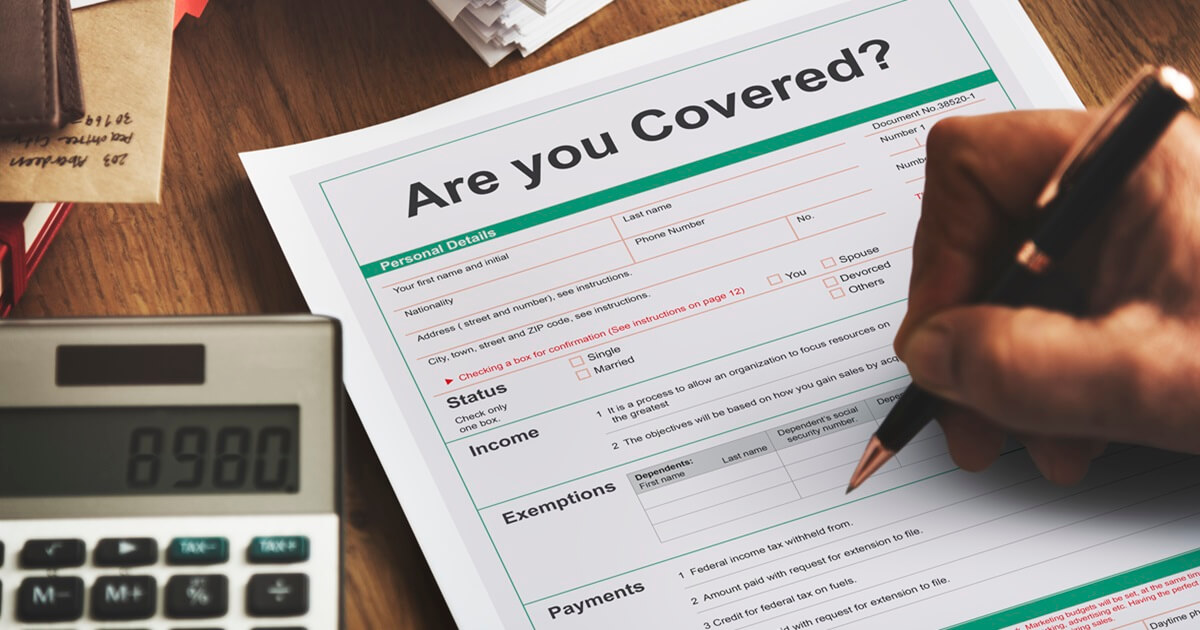Types of Commercial Auto Insurance Filings
As a trucker, you have a good deal of legal responsibilities to take care of. As trucking demands you more on the road, it can be difficult to remember and sort through all the requisites many times.
Don’t worry, we have jotted down both federal and state-level commercial auto insurance filing requirements in this post. Just go through them and be on top of your trucking game!
Goods worth millions of dollars are hauled across the country every year. This creates a huge liability for truckers who are transporting cargo interstate and intrastate. Truckers are required to follow certain insurance filing requirements to prove they have adequate liability insurance.
If you are in the transportation business, you need to comply with federal and state requisites. These auto insurance filing requirements majorly depend on the operational radius and the weight of the vehicle.
Both state and federal transportation departments have their own set of commercial auto insurance filing requirements. Due to varied filing requisites, truckers hauling goods across multiple states often get confused and end up mixing up things and failing to comply with the law.
To help you adhere to state and federal filing requirements, we will navigate you through state-specific requisites. But first, let us understand what exactly commercial auto insurance filings are.
What are Commercial Auto Insurance Filings?


Commercial auto insurance filing is a vital document that shows proof of obtaining adequate liability coverage with minimum fulfilled requirements. These are obtained from your insurance provider. Other than commercial trucking insurance requirements, this filing provides a piece of evidence to the government that your trucking business has met its legal responsibilities.
This insurance filing is a government method of guaranteeing public protection against potential accidents on the road when your commercial vehicle is in operation. If any incident happens, you become legally responsible for it. This is because commercial vehicles are massive and heavy and are capable of causing extensive damage to the public, their property, and possessions. Also, some trucks carry hazardous materials which necessitate customized coverage.
Here, insurance filing acts as documented evidence stating you have obtained insurance coverage that your state and federal government have set.
The filing that you need to do majorly depends on the type of commercial vehicle you drive or own, the area where you operate, and live. Your insurance filings depend on the following aspects:
- Operational radius.
- Type of transportation business you carry.
- Type of commercial vehicle you own or drive.
- Type of cargo or passenger you haul.
- Size and weight of the vehicle you operate.
Want to insure your fleets? Get free truck insurance quote now.


Different Types of Commercial Auto Insurance Filings
As a commercial truck driver or owner operator, you may be required to file certain insurance documents with the government. These filings are known as certificates of insurance (COIs), and they are proof that you have the minimum required levels of liability and cargo insurance. There are two types of filings, state filing and federal filing.
State filing is proof of insurance that the state requires when a trucker transports cargo or passengers within state lines.
Federal filing is the same proof of insurance that trucking businesses hauling goods outside the state lines are required to obtain.
Federal Truck Filings and Forms
The FMCSA (Federal Motor Carrier Safety Administration) requires truckers to have different sets of forms that show they have met the requisites (applicable to you). The following is the list of federal filing requirements for trucking companies that operate or transport specialized cargo within state lines.
BMC-34
BMC-34 is an agreement that should be attached to your motor cargo insurance that protects the shipment from potential hazards on the road.
Form MCS-90
Form MCS-90 is an endorsement that acts as liability insurance proof. This form is attached to motor truck cargo coverage and liability insurance. It guarantees that you will continue maintaining a public liability policy. Hazmat safety permit carriers are required to do this filing.
BMC-91 and BMC-91X Filings
BMC-91 filing is a document submitted to FMCSA that proves you have adequate liability insurance to protect the cargo or passengers that you haul across state lines. Whereas, BMC-91X filings are required when the insured has protected the risks from multiple insurance carriers instead of just one.
Intrastate Truck Filings
No matter commercial vehicle that you own is garaged or registered in the state of the United States, you need to obtain commercial truck insurance. To ensure adequate coverage, truckers and owner-operators that haul cargo within state lines must submit the following commercial auto insurance filings to state insurance departments.
Form E Filing
Form E filing validates that your liability insurance has adhered to the financial responsibility laws and guidelines set by the state. This form is submitted to state offices that handle and manage trucking.
Form H Filing
Form H filing is proof that you have adequate cargo insurance which is forwarded to the state department of your trucking business home state.
Form F Filing
Form F filing confirms that you have met each financial responsibility and guidelines in your state.
Form K Filing
Form K filing is used to terminate the previous state filing. This document is forwarded to the state agency that manages financial responsibility in your trucking business’s home state.
State-based Truck Filings
In addition to the above state filings, some truckers and companies need state-specific filings to ensure that commercial auto insurance requirements are met.
California Filings
CA OL 207 –California Driving School Certificate
CA OL 207 is a form submitted to California’s DMV (The Department of Motor Vehicles) which is a proof of insurance. Since different drivers operate different sorts of commercial vehicles, the state of California has certain requirements for driving schools.
MCP-65 Filing
MCP-65, also called a DMV65MCP filing form is a certificate of insurance that proves that your coverage complies with California’s liability insurance requirements. This filing is submitted to the CA DMV. All commercial vehicles require this filing.
PL914 Filing
PL914 filing is mandatory for businesses offering river rafting, skiing excursions, and balloon services. This is a vital document that needs to be submitted to the state.
TL672 Filing
TL672 Filing also known as TL 671 Endorsement is evidence that you have adequate cargo insurance.
TL676 Filing
TL676 Filing also known as TL 675-A Endorsement is evidence of having adequate liability insurance for truckers who are hauling household goods. It is submitted to the CA DMV.
TL1000 Filing
TL1000 filing is proof of having adequate liability insurance. This is only available for businesses, airports, car agencies, or hotels offering transportation without a charge (courtesy transportation). Having a CA# (Carrier Authority Number) is a must for the TL1000 filing. CA# can be acquired from the California Highway Patrol.
Colorado Filings
Form 12
Form 12 is available for property carriers and towing companies. This document is forwarded to the state that prove you have adequate liability coverage to protect the public against potential accidents while towing vehicles with your trucks or transporting property.
Form 14
Form 14 is proof that you have adequate liability coverage to protect people against potential accidents while operating your tow truck. This form is available for towing businesses in Colorado.
To obtain this form, you will require Colorado State Form 12 and SSRS (Single State Registration System). Also, you are required to purchase garage keepers’ liability coverage and on-hook insurance along with liability coverage to obtain Form 14.
Connecticut Filings
MC1641 Filing
MC1641 filing is issued to businesses offering free-of-charge transportation which includes airports, hotels, car rentals, etc. This document is proof of insurance for rented or leased commercial vehicles similar to California’s TL10000 filing.
R1325C Filings
R1325C Filings is proof of insurance of rented or leased commercial vehicles forwarded to the State Department of Connecticut.
GU1327C Filing
GU1327C Filing is used to nullify an MC1641 filing. This document informs the state of Connecticut about the alterations done to your liability coverage.
Florida Filings
FR 44
FR 44 is a document that proves you have purchased liability insurance. It is mandatory to maintain this filing for at least 3 years after conviction for DUI (driving under the influence).
FR 46
FR 46 filing is submitted to the insurance carrier to cancel FR 44.
Indiana Filings
SR50 Filing
SR50 Filing is a form that proves you have minimum liability insurance coverage. This document is forwarded to the Indiana BMV (Bureau of Motor Vehicles).
Montana Filings
HQMV-5 Filing
HQMV-5 Filing guarantees the State Department of Montana that you have obtained adequate liability coverage to protect people against potential accidents while operating tow trucks.
New Jersey Truck Insurance Filings
Form E Filing
Form E filing validates that your liability insurance has adhered to the financial responsibility laws and guidelines set by the state. This form is submitted to state offices that handle and manage trucking.
Form H Filing
Form H filing is proof that you have adequate cargo insurance which is forwarded to the state department of your trucking business home state.
MCS90 Filing
MCS90 Filing is an endorsement that shows the insurance company’s financial responsibility to pay the public liability. This form is submitted to FMCSA.
Ohio Filings
OS-32 Filing
OS-32 Filing is proof that you have adequate liability insurance for trailers, oversized trucks, or loads.
Oklahoma filings
WA Form
WA Form is a document that proves you have adequate liability coverage for your tow trucks.
Rhode Island Filings
GU1338C Filing
GU1338C Filing is proof that you have obtained adequate commercial auto insurance. This filing varies from vehicle to vehicle, so you will issue it for each.
Texas Filings
Form T
Form T is a document that proves you have obtained adequate liability coverage for your tow trucks.
Vermont Filings
TA-VN-31 Driver Training COI
TA-VN-31 Driver Training COI is documented proof of liability insurance for driving schools. As drivers for every vehicle keep changing in driving schools, there is a special requirement in the state of Vermont.
Virginia Filings
FR 44
FR 44 should be maintained while the driver’s license is suspended after convictions for some offenses.
FR 46
The main purpose of filing FR 46 is to cancel a FR 44. This is submitted to the insurance carrier.
Other Filings
SR-22 Filing
SR-22 Filing is forwarded to your state’s DMV. This document acts as evidence of having adequate liability coverage. This form is often used to renew a license after the suspension.
SR-26 Filing
The main purpose of SR-26 Filing is to notify the state’s motor vehicle department about the expiration, cancellation, or termination of an SR-22 filing.
Certificates of Insurance (COI)
Certificate of Insurance is similar to auto insurance filings as they also act as proof of having enough insurance coverage. The process of COIs is the same as insurance filings.
Overweight/Oversized Vehicles COI
This COI is applicable in Arkansas, Louisiana, Alabama, Pennsylvania, & Mississippi only. This certificate is subjected to oversized and overweight loads or vehicles that operate in the state. This certificate proves that you have adequate liability insurance to protect against potential damages that a large and heavy vehicle and trailer can cause.
Florida Department of Motor Vehicles COI
This COI is applicable in Florida only. Commercial tractors and vehicles with GVM (gross vehicle weight) of over 26000 lbs need proof of liability insurance that has a minimum limit.
The below table can be used as a reference which shows whether you need to submit proof of insurance (fillings) based on the vehicle class, business, and type of business
| State | Type of Business | Filing Numbers and Certificates |
|---|---|---|
| Connecticut | Courtesy transportation (not for-hire) | MC1641 Filing |
| California | Courtesy transportation (not for-hire) | TL1000 Filing |
| California | Driving schools | California Driving School Certificate |
| Vermont | Driving schools | TA-VN-31 Driver Training COI |
| California | Commercial skiing (class C) excursions | PL914 Filing |
| California | Commercial river rafting excursions | PL914 Filing |
| California | Commercial balloon excursions | PL914 Filing |
| California | For-hire transport | MCP-65 Filing |
| Colorado | Towing businesses | Form 12 |
| Colorado | Towing businesses | Form 14 |
| Connecticut | Renting or leasing a vehicle | R1325C – IRB3613C Filing |
| California | Household goods mover | TL676 Filing |
| Ohio | Oversized vehicles, loads, or trailers | OS-32 Filing |
| Alabama, Arizona, Los Angeles, Mississippi, and Pennsylvania | Oversized vehicles, loads, or trailers | Overweight/Oversized COI |
| Texas | Towing businesses | Form T |
| Oklahoma | Towing businesses | WA Form |
| All | Suspended or reinstated license | SR-22 Filing |
| Indiana | Suspended or reinstated license | SR50 Filing |
| New York | Oversized or overweight vehicles, loads, or trailers. | Perm 17 |
| California | Overweight vehicle | MCP-65 Filing |
| Florida | Overweight vehicle | Florida Department of Motor Vehicles COI |
| Montana | Towing businesses | Form MV5 COI |
| All | Transporting shipments or passengers across state lines | BMC-91X Filing |
| All | Transporting shipments or passengers across state lines | Form MCS-90 |
Unified Carrier Registration Filings
The UCR plan or Unified Carrier Registration Filings is a federally mandated program that minimizes the complexities of multiple state fee payments. This plan was effective from September 2007 and replaced SSR (Single State Registration System).
The UCR plan authorizes private motor carriers and for-hires, brokers, freight forwarding, and leasing companies to submit all single-state information which includes payment of registration fees and financial obligations. In this plan, a base state registration of all businesses operating intrastate is conducted.
If a motor carrier operates in multiple states, the payment made in the base state will be shared among the rest of the states. The UCR plan doesn’t affect the financial responsibility law, state guidelines, and rules for intrastate trucking within the base state.
Want to insure your fleets? Get free truck insurance quote now.


Exemptions for State and Federal Insurance Filings
Here is the list of states that don’t need state insurance filings:
- Florida
- Nevada
- Maryland
- Hawaii
- Oregon
- Pennsylvania
- Wyoming
Other than these states, here is a list of sectors that are exempted from state or federal auto insurance filings:
- Private carriers who are transporting their own commodities like farming, manufacturers, and retail operations.
- Owner-operators who are working under someone else’s authority.
Frequently Asked Questions About Commercial Auto Insurance Filings
Your insurance carrier can assist you in insurance filing once you have purchased the required coverage completely. Once you have done the documentation of your truck insurance, your insurer can help you with the filing process.
You can visit the FMSCA website to understand whether you need to do the insurance filing or not or which type of filing you need to submit to the government.
Here is the list of states that are exempted from state filings:
– Alaska
– Arizona
– Delaware
– Hawaii
– Maryland
– Nevada
– Oregon
– Pennsylvania
– Wyoming
The following states need state filings:
– California
– Connecticut
– Colorado
– Florida
– Indiana
– Montana
– Ohio
– Oklahoma
– Rhode Island
– Texas
– Vermont
– Virginia
You need a certificate of insurance to:
– Adhere to state, federal, or local commercial auto insurance regulations.
– Hire temporary drivers to operate commercial vehicles.
– Operate huge commercial vehicles.
Enter into a rental or lease commercial vehicles agreement.
Parting Thoughts on Commercial Auto Insurance Filings
Not knowing what insurance fillings need to be submitted from your end can increase your challenges.
Commercial auto insurance filings are crucial for your trucking business. Now you know all the major types of filings, you need to understand them well, see which one is applicable to your business, and move ahead with the process to operate legally on the roads.
If you need more help with the filing information, feel free to drop your queries in the comment box. We will get back to you soon!






